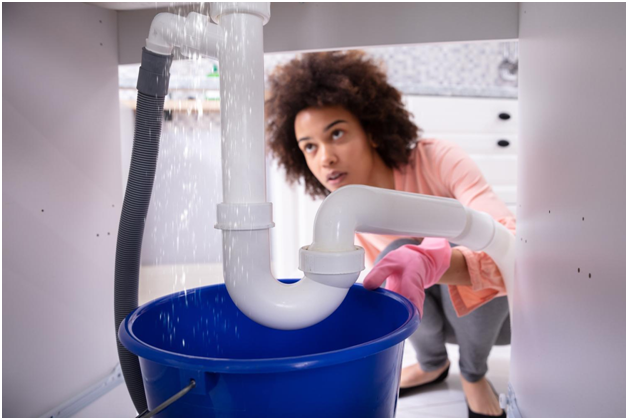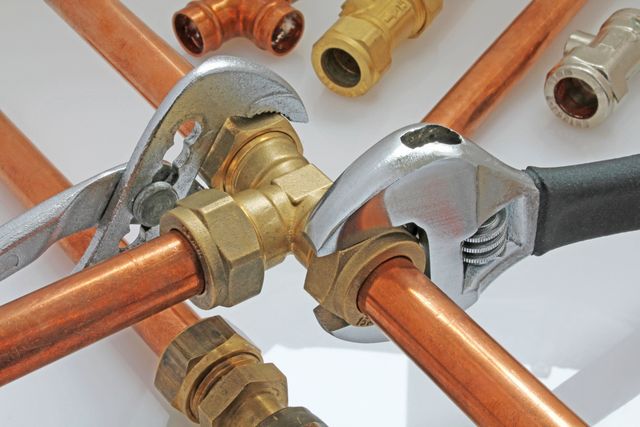We've stumbled on this post about Plumbing Emergencies: Tips on What To Do Before directly below on the net and believe it made perfect sense to share it with you on my blog.

Plumbing emergencies can strike any time, creating stress and anxiety and prospective damage to your home. Whether it's a burst pipe, a clogged up drainpipe, or a leaking faucet, knowing just how to handle the circumstance until a specialist plumbing technician gets here can conserve you from more issues. This short article offers crucial emergency situation plumbing pointers to aid you reduce damage and regain control throughout a plumbing crisis.
Switch off the Water
The initial step in any pipes emergency is to shut off the water. For local issues, such as a dripping tap or toilet, switch off the shutoff near the component. In the case of a significant leak or ruptured pipe, locate your home's major water shut-off valve and transform it off promptly. Understanding the area of these shutoffs beforehand can conserve important time during an emergency situation.
Address Small Leakages with Short-term Solutions
Little leaks can swiftly become substantial issues if left uncontrolled. Utilize these temporary repairs until specialist help gets here:
While these repairs aren't irreversible, they can help decrease water loss and damage.
Unclog Drains Pipes Securely
A blocked drain can be an irritating and messy problem. Below's how to tackle it:
If these methods don't work, stay clear of making use of excessive force, as it might aggravate the clog.
Manage Overflowing Toilets
An overflowing bathroom can create prompt chaos. Here's what you ought to do:
Turn off Your Water Heater
In specific emergencies, such as a burst pipe, it's a good idea to turn off your water heater. This avoids overheating or damage to the system when water quits moving. Switch off the power supply to the hot water heater (electrical or gas) and allow it cool to prevent prospective dangers.
Briefly Stop a Burst Pipe
A ruptured pipeline can bring about substantial water damages in minutes. To reduce the issue:
Call a professional plumbing professional right away to deal with the problem completely.
Manage Frozen Pipeline Carefully
In cooler environments, frozen pipes are an usual emergency situation. If you think an icy pipeline:
Stop Further Damages
Taking quick activity to reduce damage can save you time and money over time. Right here's exactly how:
. Have an Emergency Pipes Kit
Prepare a standard plumbing emergency situation kit to manage small problems properly. Your kit needs to consist of:
Having these tools available can make a considerable difference in your ability to manage emergency situations.
Know When to Call a Specialist.
While quick fixes can assist momentarily, particular pipes concerns call for prompt professional attention. Call a plumber if:.
Immediately speaking to a professional guarantees the problem is settled appropriately and protects against more complications.
Conclusion.
Plumbing emergency situations can be frustrating, yet with the right knowledge and tools, you can handle the circumstance successfully till aid arrives. By turning off the supply of water, dealing with little leakages, and utilizing short-lived fixes, you can minimize damage and keep your home safe. Keep in mind, these suggestions are momentary options; constantly seek advice from a qualified plumbing professional to manage the origin of the issue. Prep work and fast reasoning are your finest allies in any type of plumbing emergency.
8 Helpful Tips for Managing Plumbing Emergencies at Home
If your plumbing system hasn’t failed once, wait for it because almost everyone has a story to tell. Sometimes, it could be simple emergencies such as a leaking pipe, a blocked cistern, or even a big burst pipe. In situations like this, you need to have some handy tips to save you some money and from possible damages.
Take care of minor issues early.
Sometimes, you could have avoided an emergency by taking proactive measures while it was still early. Some major plumbing emergencies can be a result of an ignored minor issue. We recommend that you have items like plumbing tapes and other related items. A plumbing tape can allow you to manage minor leaks before the plumber arrives.
Cut off the water supply.
This tip is essential in almost any type of leakage problem. For problems like minor leakages in the toilet or kitchen, turn off the supply that takes water to the affected pipes. If the leakage is a major pipe, you must shut off the supply valve to the entire building. This will help you avoid flooding your home and neighbors if you share a flat.
Know your plumbing system
Folks typically move into a new apartment without understanding the water supply around the building. This can prove disastrous if a water emergency arises and the plumber is far away. The previous tip will prove useless if you don’t practice this one. More importantly, know where your water shut-off valve is located – you’ll need that knowledge to prevent potential home floods.
Have some common handy tools
There are lots of plumbing emergencies that you can handle without hiring a plumber. That’s why you must keep some tools available always. Some tools that you can use to fix simple plumbing emergencies easily include plumbing tapes, screwdrivers, thread seal tapes, plungers, pliers, tape measures, and rubber gloves.
Insulate your pipes from cold
You’ll save yourself from many plumbing expenses if you protect your water pipes from the cold. This is because of the harmful effects that cold weather can have on your pipes. During winter, your pipes can burst from being overly expected to freezing temperatures. So, make sure insulators are there to keep the pipes working correctly.
Avoid practices that will clog your toilet.
Many people indulge in practices that can damage the plumbing system of the entire building. One of these is when they use their toilet to dispose-off garbage. They flush all kinds of things, such as paper towels, bandages, hairs, female sanitary products, etc., down the toilet. This will block your toilet in the long run, incurring unnecessary expenditures. Dump such waste in the trash instead.
Check your dials regularly.
Sometimes, there could be leakages in your home without noticing them in time. So, constantly monitor your water meter dial. If the dial is reading when there is nobody using water, this is an indicator that there is leaking. Check for leaks immediately. Call a plumber as soon as possible if you can’t find any.
https://www.constructionplacements.com/8-helpful-tips-for-managing-plumbing-emergencies-at-home/

I stumbled upon that article about Plumbing Emergencies: Tips on What To Do Before when doing a lookup on the search engines. For those who enjoyed reading our blog posting please do not forget to share it. I am grateful for being here. Don't forget to check up our website back soon.
Book Service Now